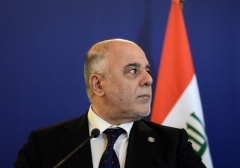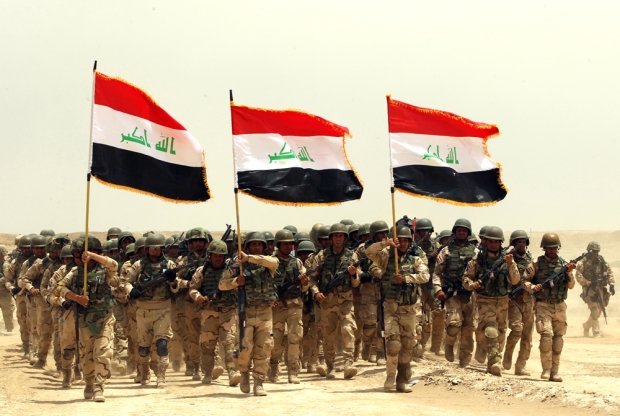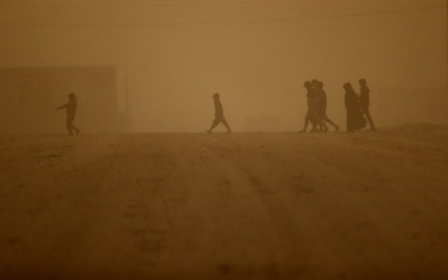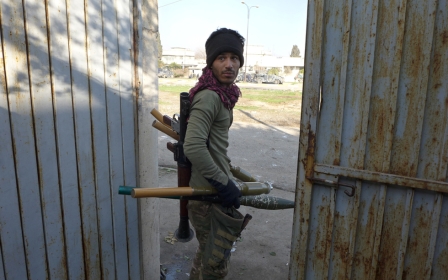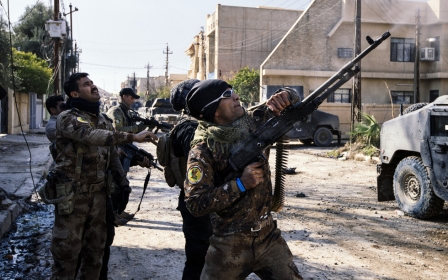Iraq wants fewer US troops on territory after Mosul, says PM
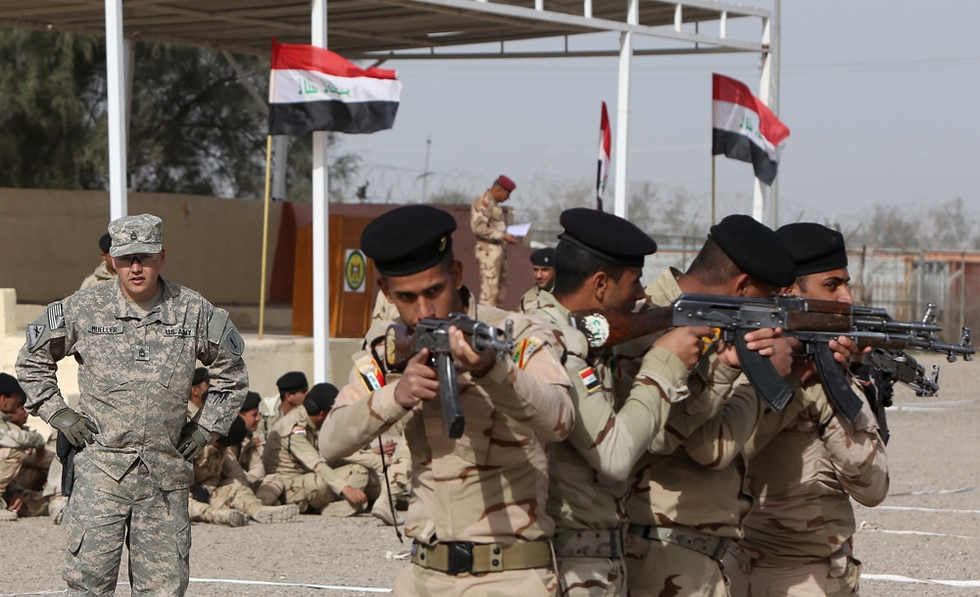
BAGHDAD - Iraq wants fewer US forces on its territory now that the Islamic State (IS) group is close to defeat in Mosul, Prime Minister Haider al-Abadi told Middle East Eye.
He used his regular weekly news conference to set out his stall for Donald Trump, on the eve of becoming the first Arab leader to visit the US president in Washington next week.
The number of forces increased and reached a peak in the battle of Nineveh. After this operation the number is going to be reduced
- Haider al-Abadi, Iraqi PM
Asked by MEE whether he favoured a reduction in US troops, the Iraqi leader said: "As we are crushing Daesh [IS], it is clear that there is a need to reduce the number of our allies who are helping us."
He pointed out that it was his predecessor, Nouri al-Maliki, who had asked US forces to return after IS captured Mosul, the capital of Nineveh province, in June 2014.
"What this government has done has been to internationalise the fight against terrorism. We have expanded it, made it more robust," he said.
"We have taken on board many countries that wanted to help Iraq as well. The number of forces increased and reached a peak in the battle of Nineveh, especially in the west of Nineveh at the moment.
"After this operation the number is going to be reduced."
Abadi's proudly nationalist line may disappoint hawks in Washington, who hope to regain long-term access to the bases the US used to have in Iraq so as to put pressure on Iran. The former president, Barack Obama, took all US troops out of Iraq in 2011.
While calling for a cut in the number of US troops, currently totalling about 5,000, Abadi made it clear he wants the US to expand its training of the Iraqi army and federal police and move on to cover local police as well.
"We have to strengthen our armed forces and security forces and this will need a lot of help from our allies to give proper training," he told MEE. "We have started the training of the local police in Anbar and Nineveh, Salah ad-Din and Baghdad, and we will expand it to all Iraqi provinces, to re-train all the police in Iraq, in addition to the army and the counter-terrorism forces.
"This mutual relationship has been very successful. We have to finish off Daesh and the rest of the terrorists by our cooperation. We need intelligence cooperation in this field; we need logistical support."
The prime minister and other Iraqis were furious when Trump included Iraq in a list of seven countries whose nationals were barred from entering the US. The other countries were Iran, Libya, Somalia, Sudan, Syria and Yemen.
Officials credit James Mattis, the new defence secretary who came to Baghdad recently, with convincing Trump to take Iraq off the list, given the inconsistency of helping an ally in the front line of fighting IS while treating all its citizens as potential terrorists.
Abadi gave a subtly worded reminder of the storm caused by Trump's original banning order: "We are looking forward to this visit [to Washington], and thanking the president himself for excluding Iraq from his executive order."
The Iraqi prime minister said it was a recognition of the "heroic victories and sacrifices made by our people" that Trump had chosen Iraq as the first Arab country to have its leader invited to Washington.
"Daesh is about to collapse and is on the verge of defeat. Their family members are fleeing," he said.
Abadi outlined other items on his US agenda, in particular an appeal for more US investment in the Iraqi economy.
The prime minister's advisers realise that the Trump administration's foreign policy is still being worked out as the State Department and National Security Council have yet to make all the top appointments to their various teams.
They are looking to a second meeting between Abadi and Trump later in the year, by which time Trump's Middle East policy will be clearer.
According to Sajad Jiyad, the director of the al-Bayan Centre for Planning and Studies think-tank, the Iraqi government is not willing to let Trump use its territory against Iran, but is willing to let the US use it against IS in Syria.
We want to press the US to push the Gulf states and Saudi Arabia to be less aggressive towards Iran
- Sajad Jiyad, head of the al-Bayan think tank
"US special forces already cross into Syria. Last week there was an Iraqi air strike inside Syria [against IS]," he said.
"The prime minister said he had spoken to the Syrian government and got permission to operate by land and air in Syria."
He hinted that the US would be allowed to expand its operations against IS in Syria without formally needing Syrian clearance if it was done through the Iraqis.
Jiyad acknowledged that Trump sounded more hostile towards Iran than Obama was, but Iraq would resist that.
"We want to press the US to push the Gulf states and Saudi Arabia to be less aggressive towards Iran.
"The Saudis saw Trump win the election and they feel he wants Iraq to be on the side of their alliance rather than on the Iranian side.
"But Abadi is balanced. He doesn't want Iraq to be anti-Iran or anti-Saudi, the same as he is with Turkey, neither anti or pro."
Middle East Eye propose une couverture et une analyse indépendantes et incomparables du Moyen-Orient, de l’Afrique du Nord et d’autres régions du monde. Pour en savoir plus sur la reprise de ce contenu et les frais qui s’appliquent, veuillez remplir ce formulaire [en anglais]. Pour en savoir plus sur MEE, cliquez ici [en anglais].


